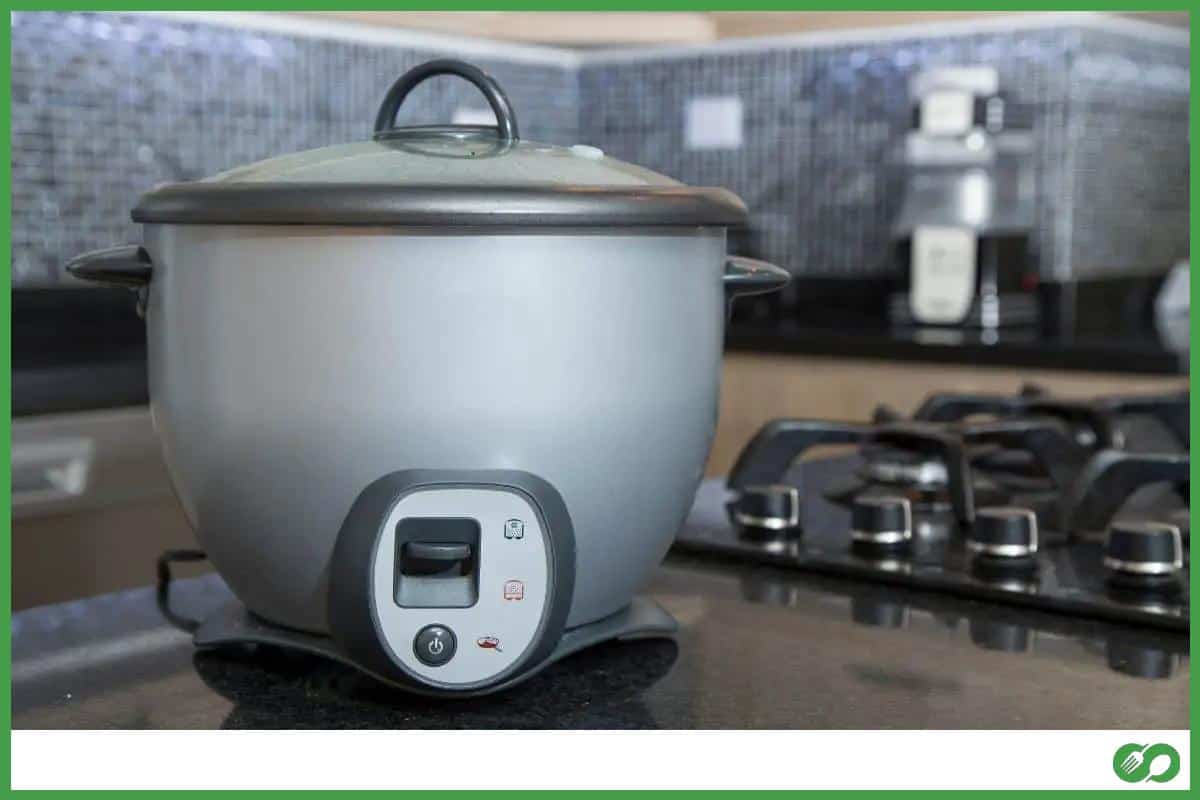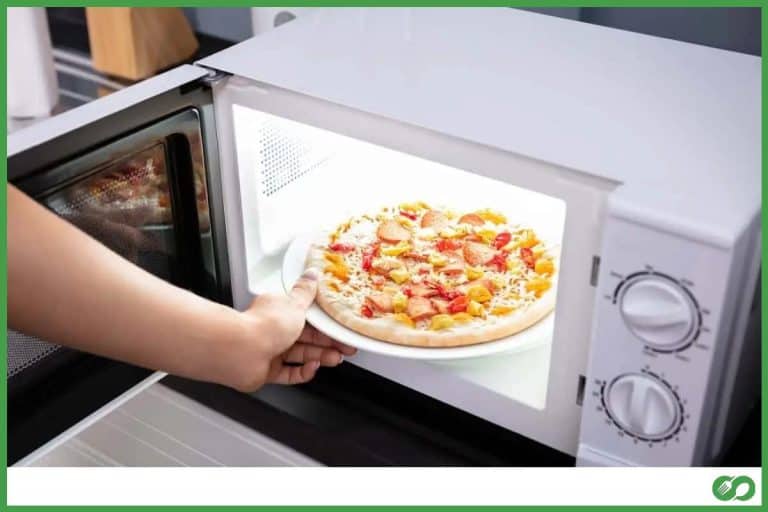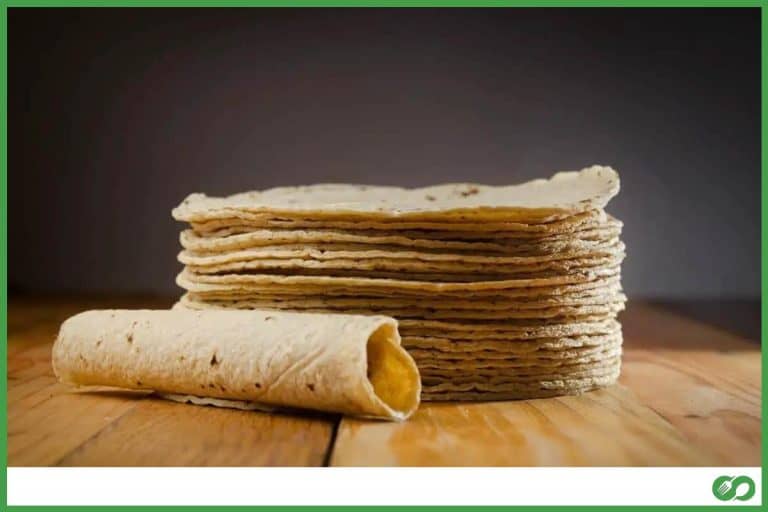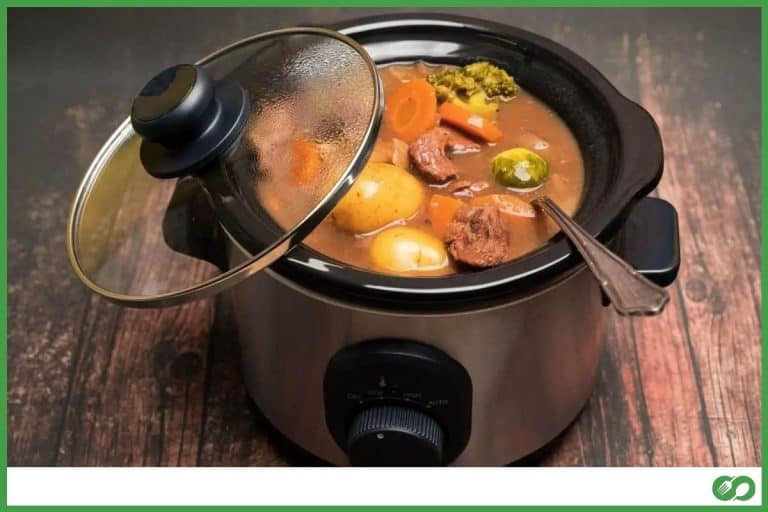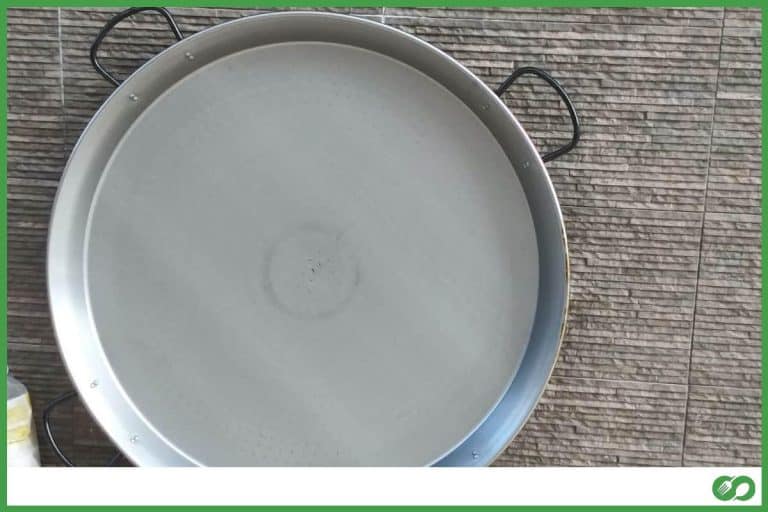How to Stop Rice Cooker from Boiling Over? (Why does it Happen?)
This post may contain affiliate links which means that, if you choose to make a purchase, I may earn a small commission at no extra cost to you.
Making rice in a rice cooker may seem simple at first. But if you are a complete rookie at cooking, you may be familiar with the sticky mess that occurs when a rice cooker boils over.
To stop your rice cooker from boiling over, you need to rinse your rice thoroughly beforehand. You also need to adjust the volume of water you pour inside the cooker. Another thing you can do to stop your rice cooker from boiling over is to add oil or butter to the mix.
In this article, you will not only find out about how to stop your rice cooker from boiling over but also why it occurs in the first place. Without much further ado, let’s find out more about using a rice cooker properly.
Why do Rice Cookers Boil Over?
There are two main reasons why rice cookers boil over and a faulty cooker is not one of them. Starchy rice and an over-filled rice cooker with water and rice is the real criminal.
Rice grains contain a lot of starch. When starchy rice is boiled, the starch mixes with the water inside the cooker and forms bubbles. The large, frothy bubbles keep on expanding with rising temperature and later exceed the rice cooker’s capacity.
The bubbles produced from rice starch and hot water also increase the boiling rate. Thus, due to the excess starch, the rice in your rice cooker boils over and leaves a sticky mess. Again if the amount of rice you added inside the cooker exceeds its capacity, you may have to deal with a sticky spill over later on.
Another reason why your rice cooker is boiling over could be that you are over-pouring the water.
Too much water than what is required can disturb the basin of the rice cooker and cause the rice to boil over.
Excessive starch in rice along with excessive water is a dangerous combo for your rice cooker. It is sure to boil over. So wash out the starch and adjust your rice-water ratio before using your rice cooker.
What to Do to Prevent Your Rice Cooker from Boiling Over?
To prevent your rice cooker from boiling over, you need to mainly make sure to rinse the rice beforehand and adjust the volume of water inside. But there are things you can do to prevent the cooker from boiling over. Here they are,
Choose the Right Type of Rice
Some rice grains are starchier than others. For example, brown rice is starchier than white rice. This is because of the type of starch predominant in a rice type.
Rice consists of two types of starch, amylose and amylopectin. Amylose makes the rice non-sticky. It is due to amylase you end up with perfectly separated, fluffy grains of rice. Compared to other rice types, long-grain white rice contains more amylose.
On the other hand, amylopectin makes the rice sticky. Thus, rice grains rich in amylopectin are perfect for making risotto and rice pudding. Short grain rice and brown rice is rich in amylopectin.
Now, to prevent the rice from boiling over in your rice cooker, you need to choose the grain that is rich in amylose. That way you will end up with rice that contains less starch and is less sticky.
Long grain rice, basmati and jasmine rice grains are great for making in the rice cooker. You do not have to worry about the rice cooker boiling over. Plus, you can also cook up some great Indian or Thai dishes with this type of rice.
Add the Right Amount of Water
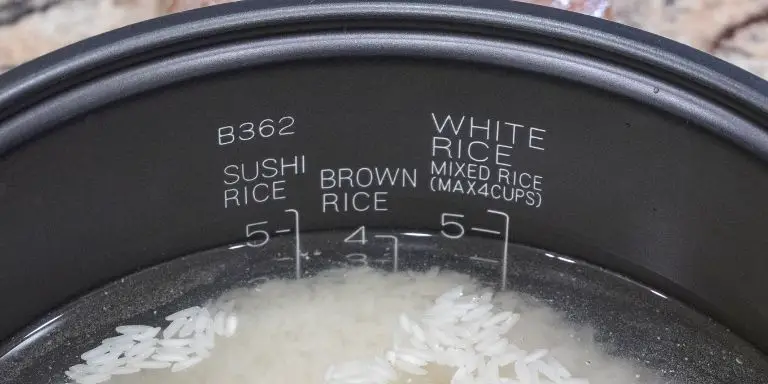
Too much water compared to the amount of rice added inside can cause your rice cooker to boil over. Thus, you need to adjust the amount of water you add to the cooker. But don’t worry there is no hard and fast rule to adding water for cooking rice.
You don’t have to be precise when it comes to adding water to your rice cooker. But then why do so many people make mistakes while adding water to their rice cooker?
Most people make the mistake of assuming that the measuring cup that comes with the rice cooker is the same as the conventional measuring cup. The measuring cup that comes with the rice cooker is much smaller than the conventional ones.
If you are using a conventional measuring cup to add rice and water, there is a high chance you overfilled the rice cooker. Now that you know of this little fact, you can get your measurements right and prevent your rice cooker from over boiling.
If you have lost the measuring tool that comes with your rice cooker, you should check the instruction manual. That way you can find out the measurements that work best for your rice cooker. But if you have lost the instructional manual too, you can just search it up on the internet.
Rinse the Rice
Rinsing the rice before cooking is the most important step. It can make or break the meal you are preparing. Not only that rinsing the rice beforehand can ensure that your rice cooker will not boil over due to starch.
Starch is present on the surface of the grains of rice. If the starch is not washed out before the rice is cooked, you will end up with a gooey and sticky texture. This type of rice texture only works if you are making risotto or a similar dish.
Moreover, if you do not wash out the starch from the rice grains, it will cause your rice cooker to boil over. So, rinse your rice grains thoroughly before cooking them. The whole process of rinsing is fairly simple; all you will need is a large bowl.
If you are using a bowl, all you have to do is pour the rice and cool water in. With your hand, stir the rice around in the bowl. The starch will begin to come off as the rice grains rub against other grains and water.
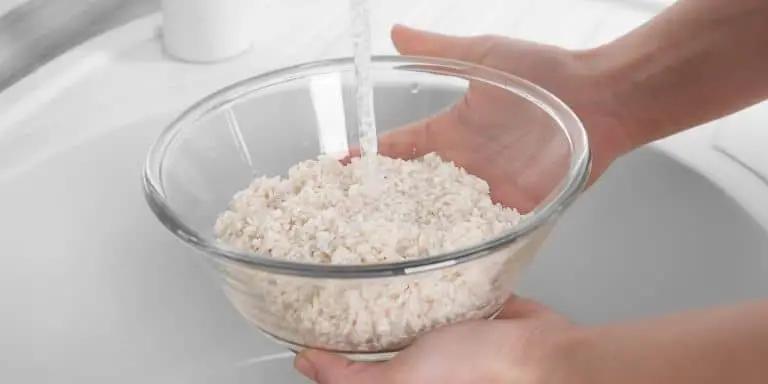
After stirring the rice, pour out the starchy water from the bowl. Hold the rice in place with your hand while pouring out the water in the sink. Add water again and stir again. Repeat the whole process till the water runs clear. At last, punch the rice in lightly to make sure there is no starch left.
Add Butter or Oil
If your rice cooker still keeps on boiling over, even after rinsing the rice and adjusting the water volume, then you should add oil to the mixture. It is a handy trick that will not only prevent your cooker from boiling over but also add to the aroma and taste of the rice.
No matter how much you rinse the rice grains, a little starch will always be left. Hence, the frothy foams will be formed either way. But adding oil will act as a barrier for the starch and keep the foams under control.
Not just any oil will do. Try not to use canola, grapeseed or vegetable oil, as these will not add flavor to the rice. You should use sesame, coconut or olive oil. You can also use butter. These oils will not only prevent the frothy foams from going haywire but also add a nice flavor to your rice dish.
Conclusion
Chores like knowing how to make rice in a rice cooker are simple yet necessary. By properly cooking rice you will not only get nutrients but also enjoy a well-made meal.
Hopefully, your rice cooker will stop boiling over after you rinse the rice beforehand and stay vigilant about how much water you add.

